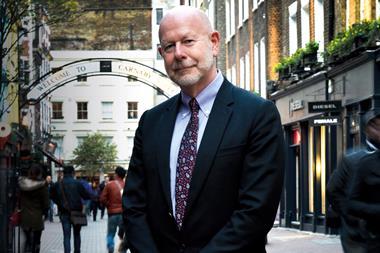It’s as if Samuel Tak Lee is in a rush to sell his property assets or something.

Last Monday (25 May), the Hong Kong billionaire instructed Citibank to look for buyers for his 26% stake in West End property group Shaftesbury. By Thursday, just three days later, Citibank told all the usual suspects it wanted final bids by the end of play. By Friday, Capco had chatted with Norges, its largest shareholder, and gained approval for the bid.
Boom! The deal was done.
Why Lee was in such a rush to sell, especially at such a discount, is a matter of some conjecture. Maybe it had something to do with having to cut his losses. After all, he is understood to have paid an average of £9 per share for his stake. He sold at £5.40.
Perhaps it had something to do with the problems in Lee’s native Hong Kong, where the majority of his assets are. The island city has suffered a 25% fall in office values due to the Covid-19 pandemic and its ongoing fight to retain independence. Perhaps Lee’s banks were getting fidgety and wanted their cash back. Perhaps, at 81, he’s just ready to sell up and hand his cash down the family tree.
All these explanations are plausible. The only thing we know for sure is that he wanted to sell quickly. The sale of his stake in Shaftesbury has all the signs of a fire sale. After all, when was the last time you investment brokers out there put something on the market on a Monday and completed the sale by Friday?
I would be surprised if more than a handful of you have ever achieved such a feat. If you have, it would be because the seller was so keen to sell that extracting the greatest possible value was the last thing on their mind.
For Shaftesbury, the deal rids it of its great nemesis. Lee pulled his litigation over Shaftesbury’s strategy last weekend as well. For Brian Bickell, the West End landlord’s boss, that must feel like a major victory. He stood up bravely to Lee’s repeated threats and has come through the other side relatively unscathed.
Capco, meanwhile, has got a bargain. After spending all the dosh (and then some) it got from selling its hopeless Earls Court project to APG and Delancey last November, it has grabbed a big chunk of one of the UK’s most resilient portfolios.
Inevitably, all the talk is now focused on a takeover of Shaftesbury by Capco, or a merger between the two. The latter is more likely because, as it stands, Shaftesbury remains the bigger player in terms of stock market value by half a billion or so.
But this is not going to happen quickly. Both sides are assessing the fallout of Covid-19, so while they are open to a merger, don’t expect serious talks to begin before the tail end of this year at least.
And what now for Lee? While everyone is looking one way, I’ve been looking another. I’m fascinated to find out why Lee sold at such a discount. If it was for any of the reasons I have outlined, can we expect more sales?
I would not be surprised if, in the very near future, you read of his intentions to sell the Langham Estate. It’s worth around £1bn and borders both the Shaftesbury and Capco patches in the heart of London.
Hmm, who might like to snap that up?
































No comments yet